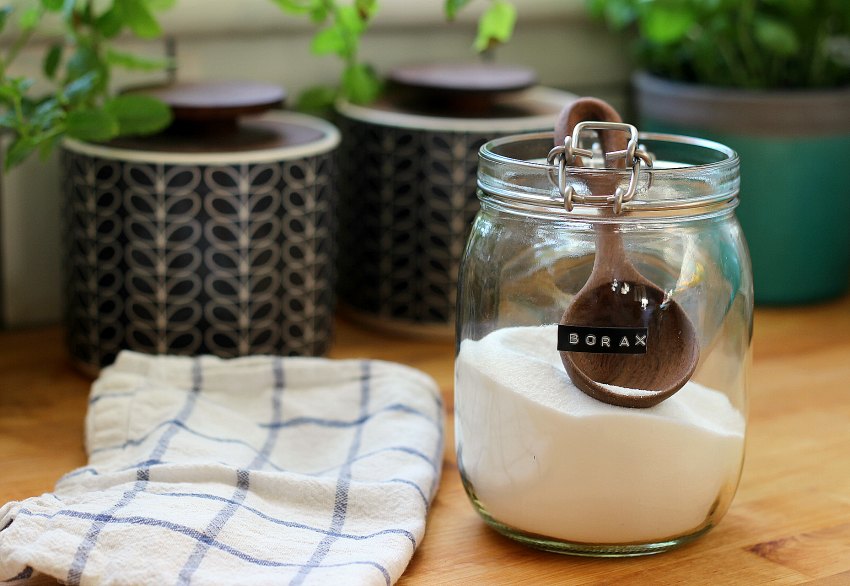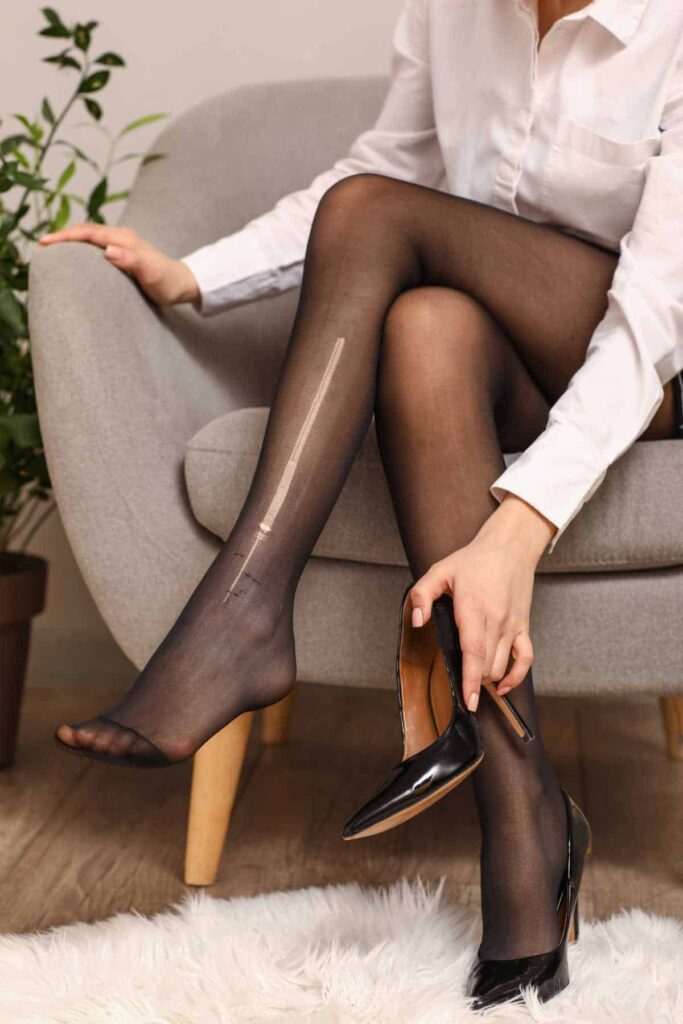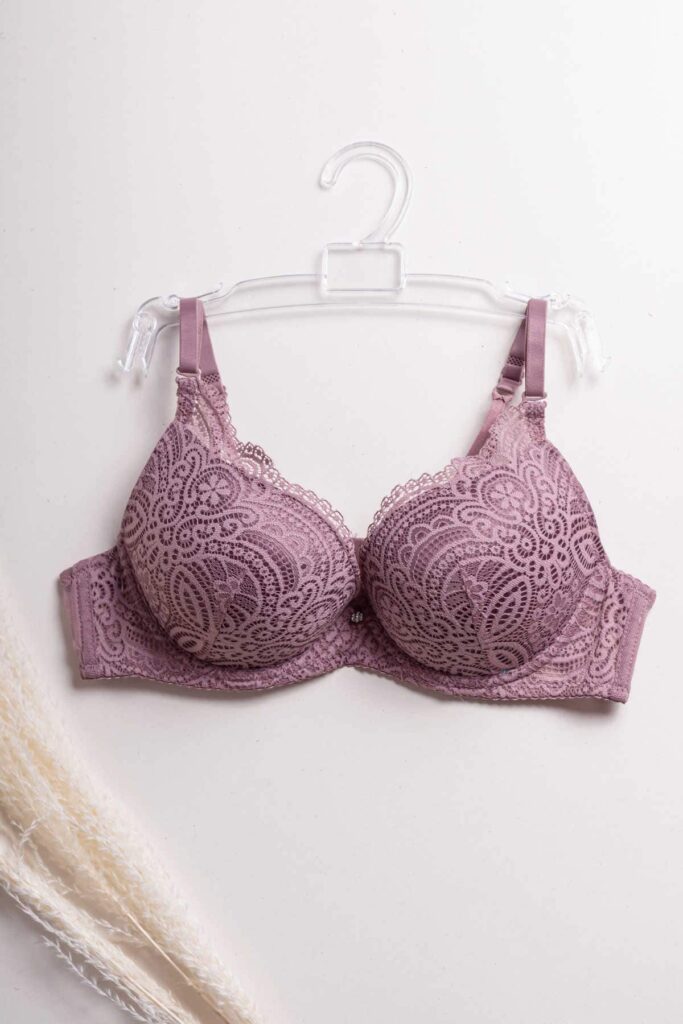The Best Eco-Friendly Baby Wipes In The UK
To support the running costs of Moral Fibres, this post may contain affiliate links. This means Moral Fibres may earn a small commission, at no extra cost to readers, on items purchased through these links.
Looking for the best eco-friendly baby wipes in the UK? Find out the eco terms to be wary of, and then try out my top suggestions for sustainable baby care – from plastic-free to certified compostable.
As a mum of two, I’m all about keeping things clean and green. Especially so when it comes to my kids.
I’ve previously shared my top tips on getting started with reusable nappies. And I’ve shared my guide to eco-friendly disposable nappies if reusables aren’t for you, or if you want to use reusable nappies on a part-time basis. But what about eco-friendly baby wipes?
The truth is that choosing eco-friendly baby wipes is a quagmire of greenwash. There are so many green claims that it’s difficult to know where to begin. Let me start off by showing you the best baby wipes brands available right now, and then the marketing terms to be wary of.
The Best Eco-Friendly Baby Wipe Brands In The UK
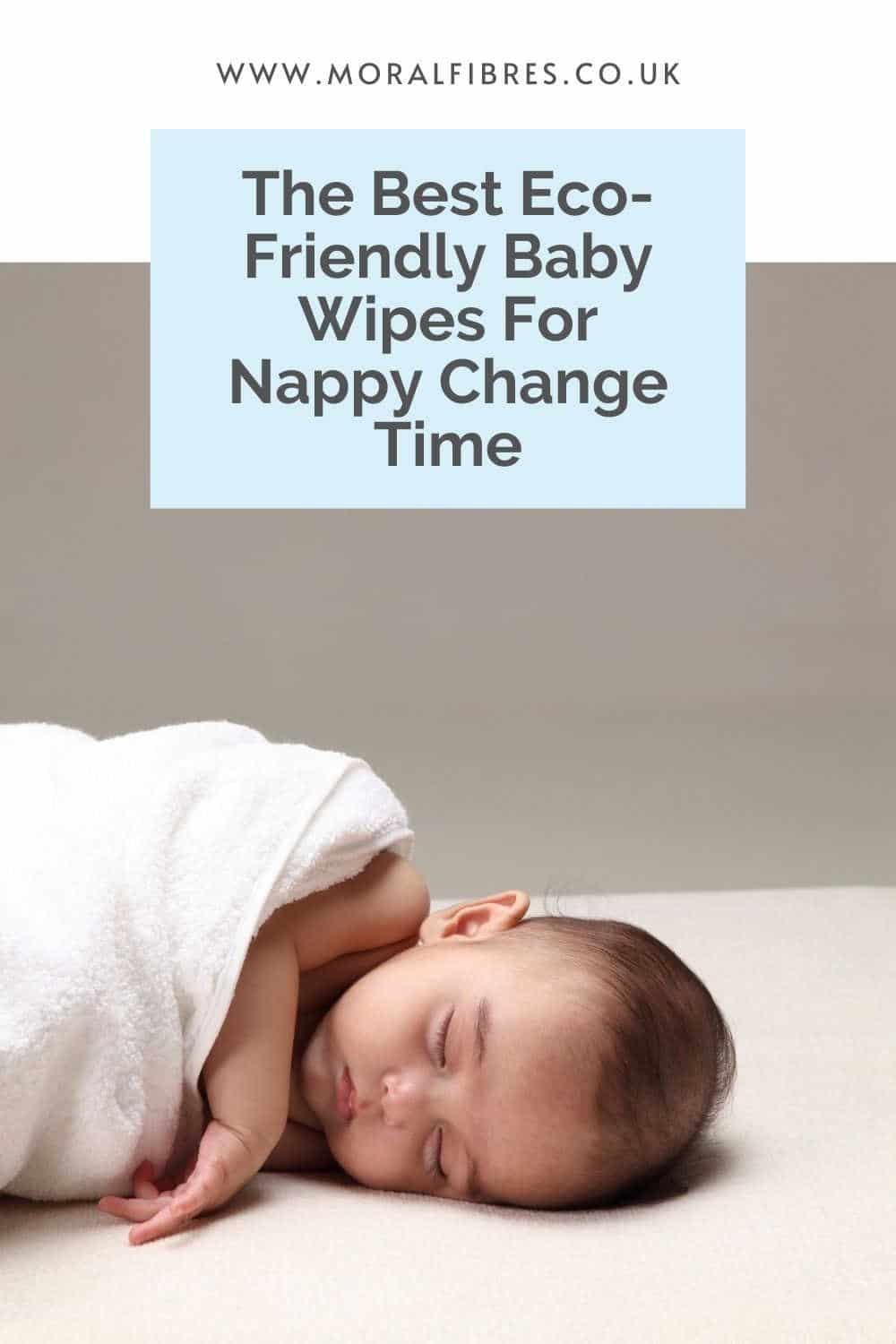
Whilst reusable baby wipes are king when it comes to sustainability, they don’t necessarily suit every situation. If you need to use disposable baby wipes then here are some more sustainable and eco-friendly brands to look out for. Use the quick links to jump to a specific brand, or keep scrolling for the the full post:
Eco by Naty

Naty eco-friendly baby wipes, available from Ethical Superstore (£2.75 for 56 wipes / 4.9 p per wipe) are wipes that I really rate. I used them on both of my kids when reusables weren’t a practical option for us and loved them.
Naty’s wipes are chlorine and perfume-free. What’s more, you won’t find any alcohol, parabens, or phthalates in them either.
Something to note is that they do contain sodium benzoate – a commonly used preservative that helps to extend the shelf life of baby wipes. I know that some people with incredibly sensitive skin like to avoid this particular ingredient due to allergies.
If sodium benzoate has flown under your radar, I wouldn’t worry. If your baby doesn’t have an allergy to sodium benzoate, then these wipes shouldn’t be a problem. Sodium benzoate, despite the chemical name, is a naturally occurring substance found in fruits including cherries, cranberries and raspberries. It’s considered safe to use on babies, plus is permitted in organic health and beauty products by all organic certification bodies worldwide.
The Naty wipes themselves are made from 100% beechwood tree pulp from sustainably managed forests. They have also been independently certified to home compost in 12 weeks. And the good news is that Naty wipes are also free from animal testing and suitable for vegans.
Cheeky Panda Bamboo Wipes

Cheeky Panda’s Bamboo Wipes, available from Ethical Superstore (£2.99 for a pack of 64 wipes / 4.7 p per wipe) is one to look at as an alternative to baby wipes.
This personal care brand is a certified B-Corp. This means that Cheeky Panda has been independently verified as meeting the highest standards of social and environmental performance.
What that looks like in practice, is that Cheeky Panda’s wipes are FSC-certified, free from animal testing, and Leaping Bunny-certified cruelty-free. Its wipes are also BPA, formaldehyde, chlorine and fragrance-free. Plus its wipes are plastic-free. Although they are packaged in plastic, this is PET1, so are easily recyclable.
Environmental credentials aside, how do they perform? I found that bamboo is strong yet soft, so these wipes don’t disintegrate when you are trying to wipe a wriggly baby. Plus, as they contain just water, apple extract and aloe, they are incredibly gentle on your baby’s skin.
Natracare
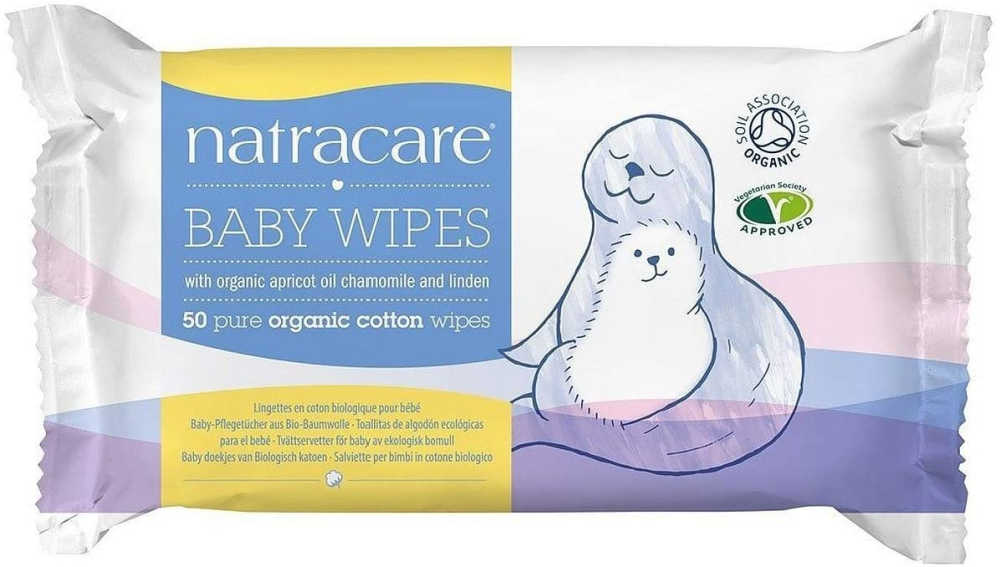
Natracare’s eco-friendly baby wipes, available from Ethical Superstore (£4.65 for a pack of 50 wipes / 9.3 p per wipe) are another wipe brand that I’ve tried and loved. Scented with organic essential oils of chamomile, apricot, and sweet almond oil, these cleanse and refresh your baby whilst smelling so good.
These wipes are free from detergents such as sodium lauryl sulphate (SLS) or any of its close relatives. They also don’t contain any parabens or synthetic preservatives, including methylisothiazolinone (MIT) and other types of formaldehyde-releasing preservatives.
The wipes themselves have also been certified as organic by The Soil Association, and they’re vegan and cruelty-free.
Something to note is that Natracare says its eco-friendly baby wipes are home-compostable in the UK, however, I couldn’t find any independent verification to support this claim.
CannyMum Bamboo Dry Wipes
If you are looking for all the convenience of disposable baby wipes but want to eschew the plastic packaging then these CannyMum bamboo wipes are a good eco-friendly choice.
CannyMum’s plastic-free baby wipes come in a fully recyclable cardboard box. When you want to use one simply wet it with a little warm water and then wipe. The wipes are soft, so don’t pull on your baby’s skin, yet strong. This means they don’t disintegrate when wet, as toilet paper does. Once you’re done, the used wipes can then be composted at home if you want to (not the poopy ones!).
As these wipes are dry, absolutely nothing is added to them. Dye-free, fragrance-free, chlorine-free, preservative-free, and sulphate-free, it’s my top choice for sensitive skin.
Available in packs of 200, directly from CannyMum’s Amazon shopfront. Click through to see today’s best price.
The Eco-Friendly Baby Wipe Terms to Be Wary Of
Now that you know some of the greenest eco-friendly baby brands available, it’s also important to know about greenwashing. The baby wipes market in the UK is awash with green buzzwords, many of them without substantiation. Here are some of the most common terms to be wary of:
Flushable
The trouble is that many disposable baby wipes, even the ones marketed as “flushable” are a disaster for both our sewer systems and for the environment. This is because even flushable baby wipes often contain plastic, and therefore don’t break down in the water as toilet paper does. And even non-plastic wipes can cause blockages. In short, don’t flush any wipes down the toilet, regardless of what the packaging might say.
Biodegradable
Biodegradable sounds good, but have you considered what the term biodegradable really means? Many people think the term biodegradable means compostable. However, this isn’t true as all compostable items are biodegradable, but not all biodegradable items are compostable.
Confused? Compostable means being able to be broken down to make compost. Meanwhile, the term biodegradable means that an item can be broken down into increasingly smaller pieces. This isn’t helpful with regard to biodegradable plastics for example. A biodegradable plastic bag will break down into smaller pieces, and hence biodegrade. However, those smaller pieces of plastic become microplastics, which in turn pose a much bigger environmental problem.
I’ve written more about the differences between biodegradable and compostable which explains in more detail. The short version is the term ‘biodegradable’ isn’t very helpful for anyone trying to make greener shopping choices, and in particular, those looking to make eco-friendly baby wipe purchasing decisions.
Compostable
A packet of baby wipes may say that they are compostable, however, it depends on how you dispose of them. Did you know that food waste doesn’t break down in landfill? With that information in mind, it’s safe to say that compostable baby wipes certainly won’t compost in a landfill. For compostable baby wipes to compost, you have to have access to the correct facilities.
For home compostable baby wipes, there are a number of issues when it comes to composting. In particular, if you plan on using your homemade compost in fruit or vegetable beds. This is because if you’ve been wiping a poopy baby bum, then you don’t want human faeces in your lovely compost. The other issue is that baby wipes tend to be impregnated with moisturising lotions, perfumes, or detergents. In short, chemicals that you probably don’t want in your compost.
Something else to think about is how large your compost bin is, and if it can handle the number of baby wipes you plan to use in a day.
In order to make good compost, you need a 50:50 mix of materials that are rich in nitrogen and carbon. The nitrogen comes from materials such as grass clippings, and food waste. Meanwhile, carbon comes from brown material, such as woody stems and cardboard, and compostable baby wipes.
Will it be possible for you to maintain a 50:50 mix by adding baby wipes every day? If you have too much carbon in your bin (as you may do by adding baby wipes every day), then the composting process will be very slow. It’s definitely a point to consider.
Final Thoughts
Baby wipes might be used to keep your baby clean, but so many wipes out there pollute the planet in the process. Whilst greenwashing is rife in the baby wipe industry, and there is so much you need to look out for, thankfully there are quite a few eco-friendly baby wipes options out there.
Whether you want the convenience of wet wipes or want to go down the completely plastic-free route of dry wipes, you can keep your baby clean, whilst helping the planet.
Do you have any other UK eco-friendly baby wipes recommendations? As always I’m all ears!
Found this post useful? Please consider buying me a virtual coffee to help support the site’s running costs.


